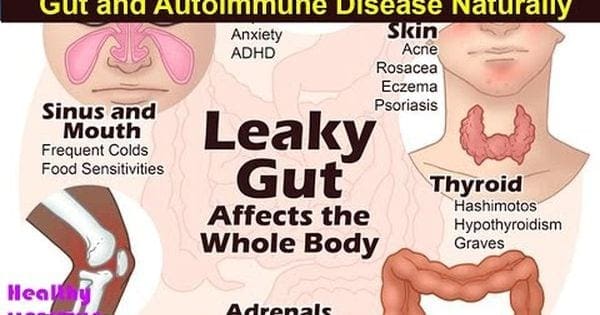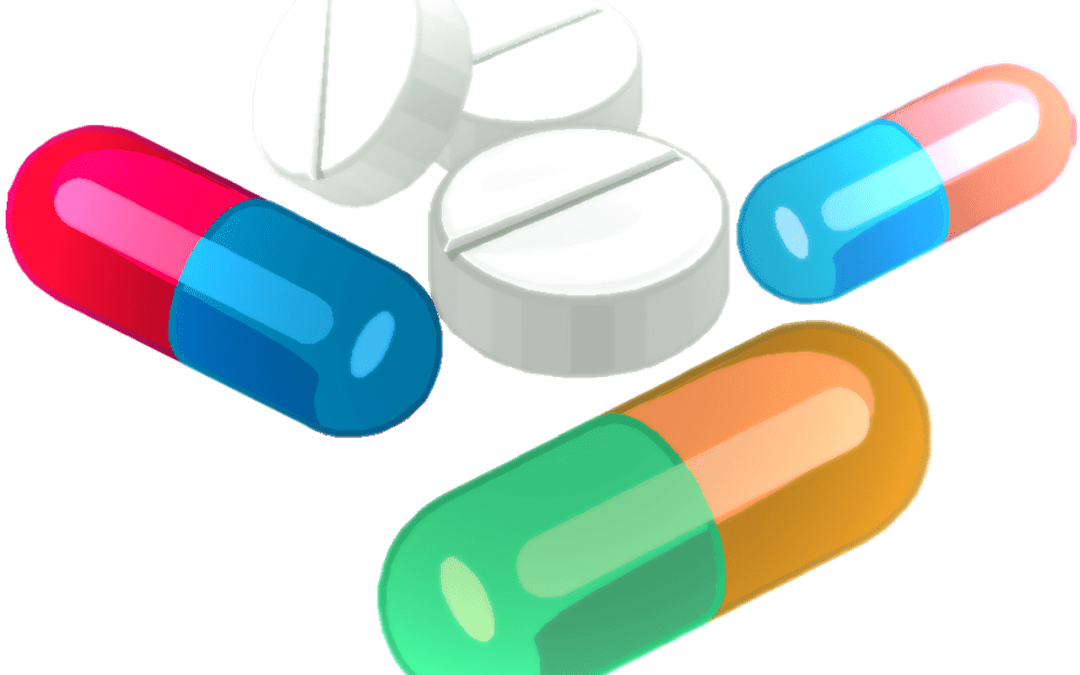
by Dr Alex Jimenez DC, APRN, FNP-BC, CFMP, IFMCP | Adrenal Fatigue (AF), Gut and Intestinal Health, Natural Health, Wellness
Chronic fatigue syndrome, a baffling disorder that affects an estimated 1 million Americans, has been strongly linked to imbalances in gut bacteria in a new study from Columbia University’s Mailman School of Public Health.
The researchers found abnormal levels of specific gut bacteria are found in people with the condition — formally known as myalgic encephalomyelitis/ chronic fatigue syndrome (ME/CFS), according to the study published in the journal Microbiome.
The findings offer new hope for an effective new way to diagnose and treat ME/CFS, a complex, sometimes-debilitating disorder that can interfere with activities of daily living.
Symptoms include extreme fatigue after exertion, muscle and joint pain, cognitive dysfunction, sleep disturbances, and orthostatic intolerance (light-headedness, dizziness, or fainting when standing upright).
Up to 90 percent of ME/CFS patients also have irritable bowel syndrome IBS, past research has shown. But the Columbia University study is among the first to disentangle microbiome imbalances in individuals with ME/CFS and IBS.
“Individuals with ME/CFS have a distinct mix of gut bacteria and related metabolic disturbances that may influence the severity of their disease,” says co-lead investigator Dr. Dorottya Nagy-Szakal.
The findings suggest sufferers may be able to ease their symptoms by incorporating certain probiotics — healthy bacteria — in their diets, to balance their gut bacteria.
To reach their conclusions, the researchers tracked 50 ME/CFS patients and 50 others without the condition. They tested subjects’ fecal samples for bacterial species, and blood samples for immune molecules.
The study’s key findings show that:
- Levels of distinct intestinal bacterial species —Faecalibacterium, Roseburia, Dorea, Coprococcus, Clostridium, Ruminococcus, Coprobacillus — are strongly associated with ME/CFS.
- The abundance of these species appears to be predictive of a ME/CFS diagnosis.
- An abundance of Alistipes and low levels of Faecalibacterium are the top biomarkers of ME/CFS with IBS. Increased Bacteroides abundance and decreased Bacteroides vulgatus are the top biomarkers of ME/CFS without IBS.
The researchers also noted the severity of patients’ symptoms — such as pain and fatigue — correlated with the abundance of distinct bacterial types.
“Our analysis suggests that we may be able to subtype patients with ME/CFS by analyzing their fecal microbiome,” says co-lead investigator Dr. Brent L. Williams, Ph.D. “Subtyping may provide clues to understanding differences in manifestations of disease.”
The study also points toward a possible mechanism behind the development of ME/CFS.
“ME/CFS may involve a breakdown in the bidirectional communication between the brain and the gut mediated by bacteria, their metabolites, and the molecules they influence,” explains senior author Dr. W. Ian Lipkin.
“By identifying the specific bacteria involved, we are one step closer to more accurate diagnosis and targeted therapies.”
So far, researchers have not identified the cause of ME/CFS. Nor are there any standard diagnostic lab tests or federally-approved treatments for the condition. For reasons that are unclear, women are two to four more times likely than men to have ME/CFS.
Because MD/CFS is so variable, treatment focuses on individual symptom control. Conventional approaches include prescription medications to treat anxiety, depression, and insomnia; graded exercise, physical therapy, and psychological counseling including cognitive-behavioral therapy (CBT).
Adjunctive therapies to help manage pain and fatigue include:
- Acupuncture.
- Biofeedback.
- Deep breathing exercises.
- Hypnosis.
- Massage.
- Meditation.
- Muscle relaxation techniques.
- Yoga or tai chi.
- Preliminary but inconclusive research suggests that some natural remedies may be helpful for ME/CFS, according to the Mayo Clinic. These include:
- Magnesium injected into the muscles of people with low red blood cell magnesium.
- A combination supplement containing fish oil and evening primrose oil.
- Melatonin.
- Nicotinamide.
- Adenine dinucleotide hydrate (NADH).
- Coenzyme Q10.
- Propionyl-L-carnitine.
- D-ribose.
Although the new Columbia University study suggests that probiotic supplements may be helpful for ME/CFS, more research is needed, experts say.
A 2009 study of 39 ME/CFS patients, however, showed that the Lactobacillus casei strain Shirota (LcS) was associated with significantly reduced anxiety symptoms compared to placebo.

by Dr Alex Jimenez DC, APRN, FNP-BC, CFMP, IFMCP | Gastro Intestinal Health, Gut and Intestinal Health, Natural Health, Probiotics, Wellness
Breastfeeding has long been linked to a variety of health benefits in babies, and a new study suggests that bacteria transferred from mothers to their nursing infants might be at least partly responsible.
Researchers focused on what’s known as the microbiome, or all of the bacteria, viruses and fungi that live in and on the body. They tested 107 mother-baby pairs for organisms on women’s breasts and in their milk, and they also examined babies’ stool as a way of determining what types of organisms were in the infant gut microbiome.
While they found distinct types of bacteria in milk, breast tissue and infant stool, researchers also found infants’ gut microbial communities matched the bacteria in their mothers’ milk and on their mothers’ skin much more than it resembled samples from other women in the study.
That suggests each mother’s milk was a major contributor to her own infant’s gut microbiome.
“We were able to show that there are bacteria in milk and that these bacteria could be traced to bacteria in infant stools,” said senior study author Dr. Grace Aldrovandi, chief of the division of infectious diseases at Mattel Children’s Hospital at the University of California, Los Angeles.
“This supports the hypothesis that milk microbes are a mechanism by which breastfeeding provides benefit,” Aldrovandi said by email.
Pediatricians recommend that mothers exclusively breastfeed infants until at least 6 months of age because it is tied to reduced risk for babies of ear and respiratory infections, sudden infant death syndrome, allergies, childhood obesity and diabetes.
Mothers may benefit too, with longer periods of breastfeeding linked to lower risks of depression, bone deterioration and certain cancers.
Based on lab tests of bacteria found in milk, on skin and in stool in the current study, researchers estimated that babies who got at least 75 percent of their nutrition from breast milk during the first month of life received about 28 percent of their gut bacteria from their mother’s milk. These babies also got about 10 percent of their gut bacteria from mothers’ skin and 62 percent from sources researchers didn’t determine.
The more babies nursed, the more their gut bacterial community changed to resemble what was found in their mother’s milk.
And in babies who got more of their nutrition exclusively from breastfeeding, microbial communities were slightly more diverse overall and different microbes predominated compared to babies who breastfed less.
One limitation of the study is that researchers didn’t assess the origins of the breast milk bacteria or other bacterial communities from the mother that might have contributed to the infant gut microbiome, the authors note. Nor did they assess any effects on the babies’ health based on differences in their microbiomes.
Still, the results build on previous research suggesting that the infant gut microbiome is different for breast-fed and formula-fed babies, said Dr. Alexander Khoruts, a researcher at the University of Minnesota in Minneapolis who wasn’t involved in the study.
“We’ve always assumed that most of these microbes come from the mother,” Khoruts said by email. “They found that breastfeeding is the major source of microbial transfer during the early months of life, and I think the study provides supportive evidence for the current recommendations of exclusive breastfeeding for the first six months and continued breastfeeding to 12 months.”
Many factors can influence the infant gut microbiome, including breastfeeding, whether babies arrived by vaginal or surgical delivery and antibiotic use, noted Jose Clemente, a researcher in the genetics and genomic sciences at the Icahn School of Medicine at Mount Sinai in New York.
“The beneficial effects of breastfeeding are well known, and this study provides further evidence by demonstrating that probiotic bacteria found in breast milk can be transferred to the infant,” Clemente, who wasn’t involved in the study, said by email. “Every little bit helps, so even some amount of breast milk can be a source of beneficial bacteria for babies.”

by Dr Alex Jimenez DC, APRN, FNP-BC, CFMP, IFMCP | Leaky Gut
- Intense physiological stress can change the composition of our gut microbiota
- Imbalances in the gut arelinked to diabetes, obesity and some cancers
- Findings raise concerns for endurance athletes and military personnel
- The study is the first to investigate gut bateria during military training
Long periods of intense exercise can change the composition of your gut bacteria, a new study has found.
The research looked at soldiers taking part in an intensive training programme and found that pro-longed exercise caused the protective barrier in their guts to become permeable.
In other words, the prolonged exertion triggered �leaky guy syndrome� � a condition that could let harmful substances leak into the bloodstream.
With our gut health and overall health believed to be strongly linked, intense physiological stress could therefore raise the risks of many types of illnesses.
The new research is the first to investigate the response of gut microbiome � the term for the population of microbes in the intestine � during military training.
It provides a stark warning for endurance athletes and military personnel.

The study suggests physical stress can increase intestinal permeability, which can raise the risk of inflammation and illness
Most of us are aware that the bacteria in our gut play an important role in digestion. Furthermore, they are known to aid the production of certain vitamins � such as vitamins B and K � and play a key role in immune function.
But increasingly, research is emerging showing how poor gut health is linked to conditions ranging from irritable bowel syndrome, diabetes, high blood pressure, depression, obesity, childhood asthma, to colitis and colon cancer.
The study is the first to investigate the response of gut microbiome � the term for the population of microbes in the intestine � during military training.
It looked at a group of 73 Norwegian Army soldiers taking part in a military-style cross country skiing training programme.

Recent research suggests our gut bacteria holds the key to improving our health � and may be the key to tackling obesity
The group skied 31 miles (51 km) while carrying 99-pound (45 kg) packs, across four days.
Before and after the training exercise, researchers collected blood and stool samples from the soldiers.
It was found that the microbiome and metabolites � the substance formed in or necessary for metabolism � in the soldiers� blood and stool altered �significantly� by the end of the aggressive training period.
Furthermore, sucralose excretion in their urine samples rose considerably, indicating an increase in intestinal permeability (IP).
Scientists know that healthy intestines have a semi-permeable barrier, which acts as a defense to keep bacteria and other harmful substances out, while allowing healthy nutrients into the bloodstream.
It is thought that physical stress can increase IP, increasing the risk of inflammation, illness and symptoms such as diarrhoea.

The findings may spell bad news for endurance athletes and military personnel
The researchers wrote: �Intestinal microbiota appear to be one influencing factor in the gut�s response to physical stress.
�Our findings suggest that the intestinal microbiota may be one mediator of IP responses to severe physiologic stress, and that targeting the microbiota before stress exposure may be one strategy for maintaining IP.�
The study was published ahead of print in the American Journal of Physiology � Gastrointestinal and Liver Physiology.
MICROBIOME: DOES IT CONTROL EVERYTHING?
Researchers now estimate that a typical human body is made up of about 30 trillion human cells and 39 trillion bacteria.
These are key in harvesting energy from our food, regulating our immune function, and keeping the lining of our gut healthy.
Interest in, and knowledge about, the microbiota has recently exploded as we now recognise just how essential they are to our health.
A healthy, balanced microbiome helps us break down foods, protects us from infection, trains our immune system and manufactures vitamins, such as K and B12.
It also sends signals to our brain that can affect mood, anxiety and appetite.
Imbalances in the gut are increasingly being linked to a range of conditions. Last year, scientists at California Institute of Technology found the first ever link between the gut and Parkinson�s symptoms.
The composition of our gut microbiota is partly determined by our genes but can also be influenced by lifestyle factors such as our diet, alcohol intake and exercise, as well as medications.
Source: http://www.dailymail.co.uk/health/article-4484680/Intense-exercise-causes-leaky-gut-risk-illness.html

by Dr Alex Jimenez DC, APRN, FNP-BC, CFMP, IFMCP | Leaky Gut
Leg discomfort might slip up quietly or may hit abruptly. Regardless of how it is got by one pain may become worse fairly rapidly. No further nowadays a disease that inflicts just the aged, leg discomfort is becoming typical for individuals of ages. Several natural home remedies have been outlined by us for knee-joint pain that may give respite from the discomfort to you. #HomeRemedies

by Dr Alex Jimenez DC, APRN, FNP-BC, CFMP, IFMCP | Leaky Gut
Amino acids are the building blocks of proteins—the “bricks” that build your entire body: organs, bones, hormones, skin, hair, nails, etc. If you imagine yourself as a brick house, the busier you are (i.e., long work days, exercise, late nights, etc.), the more bricks you wear out and thus the more you need to replace.
Your body can make most of the 20 amino acids from its own internal machinery, except for the essential amino acids, which must be obtained from the food you eat. However, the rules of the game change under one particular circumstance… stress!
There is a group of amino acids called conditionally essential; under times of stress, they become essential. You’re probably wondering what qualifies as “times of stress”? In today’s 24/7 society of constant connectivity, fewer hours sleep, and nutrient-poor, calorically-dense Western diet, you could make a strong argument that we’re constantly in this state and thus would benefit from taking in more conditionally essential amino acids, especially one in particular called glutamine.
What Is Glutamine?
Glutamine is the most abundant amino acid in the body. It is considered conditionally essential, meaning your body can make it from its own internal machinery, but under times of stress (i.e., if you’re training for a marathon, working long hours, struggling with cold or flu), it’s required in much greater amounts.
Your body needs glutamine in times of stress. In this day and age, it you could be in this state fairly often!
Glutamine is also a primary fuel for your gut and immune system, and it supports healthy brain function (one of the few amino acids that can cross the blood-brain barrier), helps to clear waste products like ammonia from the body, and accelerates healing from trauma or intense exercise.
7 Glutamine Benefits
1. Promotes Weight Loss
If you’re stuck on a weight loss plateau, amino acids like glutamine can be very supportive for weight loss because they can be converted to glucose in the kidneys and used as a fuel source for the body, without the blood sugar and insulin spike typically caused by processed carbs and simple sugars. (1)
Glutamine can help you lose weight by converting stored glucose to an immediate fuel source.
2. Fights Leaky Gut
Sugar consumption is ubiquitous in our environment today, and, combined with stress and lack of sleep, can easily lead to dysbiosis or too much “bad” bacteria in the gut. This is very common today and when it persists, it can lead to chronic inflammation and damage to the lining of your intestinal tract. This damage can result in a leaky gut, where food particles are able to pass through your gut wall (when normally they shouldn’t be able to), which in turn leads to food allergies and increased risk of autoimmune reactions. (2) Glutamine is one of the primary fuels for your gut cells, thus helping to maintain the integrity of the gut wall and prevent leaky gut.
3. Improves Skin Tone
Keeping your glutamine intake sufficient is crucial for keeping your skin firm and supple. If you don’t eat enough protein, your body breaks down muscle to tap into your body stores, leading to the loss of protein, thinning muscles and skin potentially sagging more easily. (3) Animal protein is the best source of essential and conditionally essential amino acids, making the Paleo diet a great platform for meeting your requirements.
4. Boosts Brain Function
If you’re run down, not sleeping well or generally exhausted from too many late nights, you’re likely experiencing some brain fog. When your brain has a deficiency in glutamic acid (precursor for glutamine), you cannot produce adequate amounts of GABA (gamma-amino butyric acid), the body’s natural “relax” neurotransmitter. This can lead to increased tension, brain fog, anxiety, or sleep disorders. (4) By topping up your glutamine intake, you provide your body the building blocks for GABA and better brain function.
5. Helps Post-Workout Recovery
Exercise is a stressor, so you would think that the addition of conditionally essential amino acids like glutamine would enhance athletic performance. While many websites will cite studies that claim there is a benefit from glutamine supplementation and performance, the overall data don’t support this claim.
Try supplementing with glutamine right after a workout to help you bounce back quicker.
However, there is some good evidence that added glutamine increases glycogen resynthesis after exhaustive exercise, which means adding it would be a nice addition to your post-training shake if you’re following a keto or low-carb diet. (5)
6. Boosts Immunity
Glutamine does indeed support improved immunity during times of stress, but the therapeutic dose you need to consume is quite high: 20g per day for a sustained period of time (i.e., weeks). (6) This could be divided up into 5g doses throughout the day. Before jumping into a plan like this, talk to your doctor or naturopath.
7. Supports Cancer Therapy
Cancer therapy, while essential for eliminating cancerous cells in the body, is intense and takes its toll on the patient’s overall health. Supplemental glutamine has been shown to be an effective adjunct treatment, supporting the patient’s metabolism while not increasing tumor growth. (7) It can therefore be considered, with the agreement of your doctor, as a support for patients going through radiation or chemo.
How Can You Get Enough Glutamine?
Glutamine is naturally found in abundance in animal protein. Paleo diet staples like grass-fed beef, wild game, pastured eggs and poultry, wild fish, seafood, and organ meats are all phenomenal sources of glutamine.
Leafy greens, such as spinach, cabbage, parsley, kale, beets, are also a nice source of glutamine. The tricky part is you’ll maximize your intake by eating these vegetables raw, so including these veggies in salads, juicing, or adding into smoothies is your best bet.
Natural Sources of Glutamine
- Grass-fed beef
- Wild game
- Pastured eggs and poultry
- Wild fish
- Organ meats
- Leafy greens, i.e., spinach, cabbage, kale
You can also supplement with glutamine to increase your daily intake. While it’s important to remember that glutamine is made inside your body, if you’re under stress (i.e., really busy, training hard, not sleeping well, sick, etc.), glutamine becomes essential, so adding more into your diet can be highly beneficial. All of the benefits listed above are the result of supplementing with the natural form of the amino acid (called L-glutamine).
Glutamine Powder
Supplemental glutamine is relatively inexpensive and tasteless, which means it’s quite easy to add into your nutrition arsenal. I typically suggest that my clients add 5g daily in their breakfast smoothie, mixed into water while they eat breakfast, or added into afternoon tea or before bed.
Add glutamine powder into your breakfast smoothie or add it to your tea before bed.
If you have a more long-standing complaint of low immunity, digestive problems, inability to recover from exercise, then it’s possible to increase your daily dose to 0.2 grams per kilogram body weight. However, I suggest you work with a functional doctor or naturopath in your area to discuss this in greater depth.
Bottom Line
If you feel like you’re constantly sick, struggling with chronic gut problems or just feel rundown, then getting the right amount of amino acids—the building blocks of your body—is critical to getting your health on track. Today, if you’re like most people, you’re busy and constantly on the run, making amino acids like glutamine really important to keep your immune system strong, digestive system healthy and overall resiliency robust. For many, it’s a great addition in the winter months to increase your resiliency so you can keep up with the pace at work and play.
(This article originally appeared @Paleohacks.com)
Dr. Marc Bubbs ND, CISSN, CSCS
Check out more articles in the “PROTEIN” SERIES…

by Dr Alex Jimenez DC, APRN, FNP-BC, CFMP, IFMCP | Gut and Intestinal Health, Natural Health, Wellness
Using antibiotics very early in life may lead to developing inflammatory diseases later in life, says a new report published in the Journal of Leukocyte Biology. Using antibiotics in infancy disrupts the normal development and growth of gut bacteria, and in addition to contributing to gut problems such as inflammatory bowel disease (IBD), the altered environment may contribute to other inflammatory diseases such as asthma and multiple sclerosis.
The study also indicates that altering gut bacteria may be a way to treat or prevent some inflammatory diseases.
“Our study demonstrates that gut bacteria in early life do affect disease development in adulthood, but this response can be changed,” said Colby Zaph �of the School of Biomedical Sciences at Monash University, Australia.
The study has important ramifications for using pre- and probiotics, in the administration of antibiotics to newborns, and to the understanding of how gut bacteria play a critical role in the development of �inflammatory diseases such as IBD.
For the study, scientists used two groups of mice. The first group included pregnant females treated with broad spectrum antibiotics during pregnancy and pups treated with broad spectrum antibiotics for the first three weeks of life.
The second group was a control group that consisted of untreated pregnant mothers and pups. The pups in the treated group were weaned at three weeks of age and antibiotic treatment was stopped at the same time. These pups had reduced levels of gut bacteria and were allowed to age normally.
At eight weeks of age, immune cells (CD4 T cells) from both the treated and untreated pups were examined for their ability to induce irritable bowel disease in other mice. The immune cells from antibiotic-treated mice induced a more rapid and more severe disease than those from the untreated mice.
Another recent study connected Gulf War Illness (GWI) to changes in gut bacteria. Researchers found that the chemicals, etc. that veterans were exposed to altered the microbiome � the bacteria that inhabit the gut. The affected microbiota then produce endotoxins, which pass through a thinned lining of the gut (called a leaky gut) and into the blood where they circulate throughout the body.
These compounds trigger an inflammatory response that, in turn, initiates several neurological abnormalities commonly observed in GWI, such as cognitive difficulties, widespread pain, and debilitating fatigue.

by Dr Alex Jimenez DC, APRN, FNP-BC, CFMP, IFMCP | Gut and Intestinal Health, Natural Health
Using antibiotics very early in life may lead to developing inflammatory diseases later in life, says a new report published in the Journal of Leukocyte Biology. Using antibiotics in infancy disrupts the normal development and growth of gut bacteria, and in addition to contributing to gut problems such as inflammatory bowel disease (IBD), the altered environment may contribute to other inflammatory diseases such as asthma and multiple sclerosis.
The study also indicates that altering gut bacteria may be a way to treat or prevent some inflammatory diseases.
“Our study demonstrates that gut bacteria in early life do affect disease development in adulthood, but this response can be changed,” said Colby Zaph of the School of Biomedical Sciences at Monash University, Australia.
The study has important ramifications for using pre- and probiotics, in the administration of antibiotics to newborns, and to the understanding of how gut bacteria play a critical role in the development of inflammatory diseases such as IBD.
For the study, scientists used two groups of mice. The first group included pregnant females treated with broad spectrum antibiotics during pregnancy and pups treated with broad spectrum antibiotics for the first three weeks of life.
The second group was a control group that consisted of untreated pregnant mothers and pups. The pups in the treated group were weaned at three weeks of age and antibiotic treatment was stopped at the same time. These pups had reduced levels of gut bacteria and were allowed to age normally.
At eight weeks of age, immune cells (CD4 T cells) from both the treated and untreated pups were examined for their ability to induce irritable bowel disease in other mice. The immune cells from antibiotic-treated mice induced a more rapid and more severe disease than those from the untreated mice.
Another recent study connected Gulf War Illness (GWI) to changes in gut bacteria. Researchers found that the chemicals, etc. that veterans were exposed to altered the microbiome — the bacteria that inhabit the gut. The affected microbiota then produce endotoxins, which pass through a thinned lining of the gut (called a leaky gut) and into the blood where they circulate throughout the body.
These compounds trigger an inflammatory response that, in turn, initiates several neurological abnormalities commonly observed in GWI, such as cognitive difficulties, widespread pain, and debilitating fatigue.















